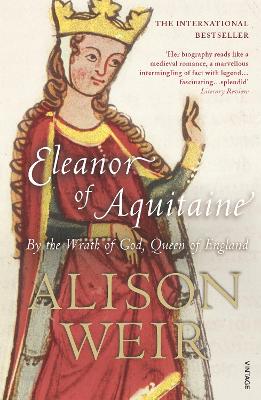
gmcgregor
Weir has quickly become one of my favorite historians to read, because she has a way of synthesizing lots of information into an easily readable and understandable narrative. She's open about when the scholarship is unclear, or there's more than one version of a particular event, and she tells the reader why she has chosen to take a particular position on what likely really happened. She knows that her reader isn't as immersed in the subject as she is and provides context for the events she relates...she finds a good middle ground between assuming her readers know too little or too much.
My only real exposure to Eleanor's story had been the movie version of The Lion In Winter with Peter O'Toole and Katharine Hepburn, which I saw several years ago and remember little of apart from Eleanor being portrayed as a ruthless schemer. Weir never stoops to that kind of caricature of the people involved in Eleanor's life, especially Eleanor herself: she was a political opportunist to be sure, but she also lived in an era that was especially skeptical of women in power and the accounts of her that survive reflect that bias. I've got quite a few of Weir's books on my TBR, and I always look forward to them and recommend them (including this one!) heartily.
